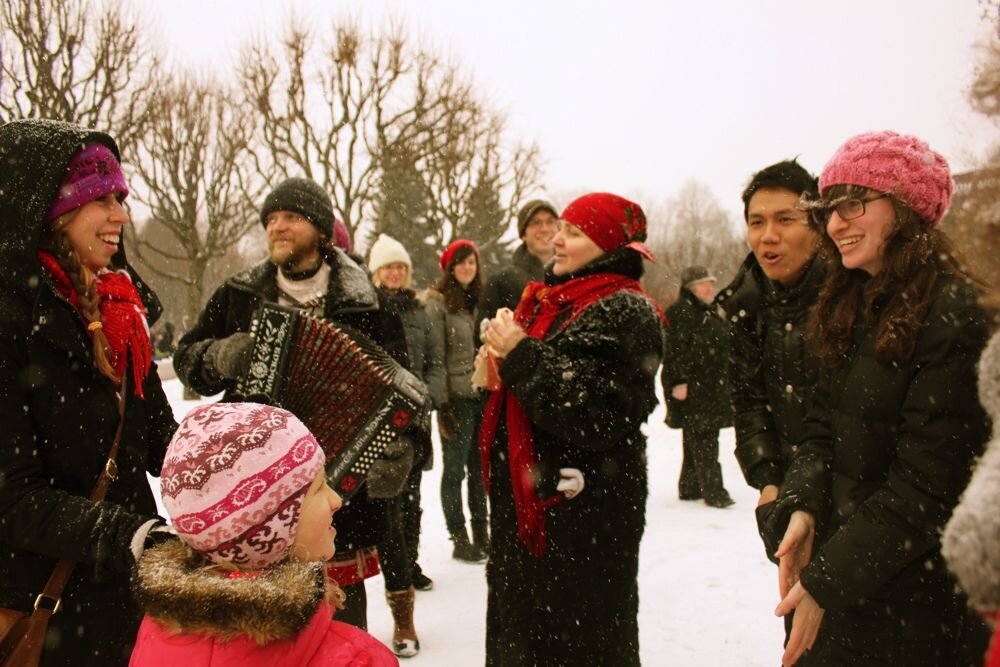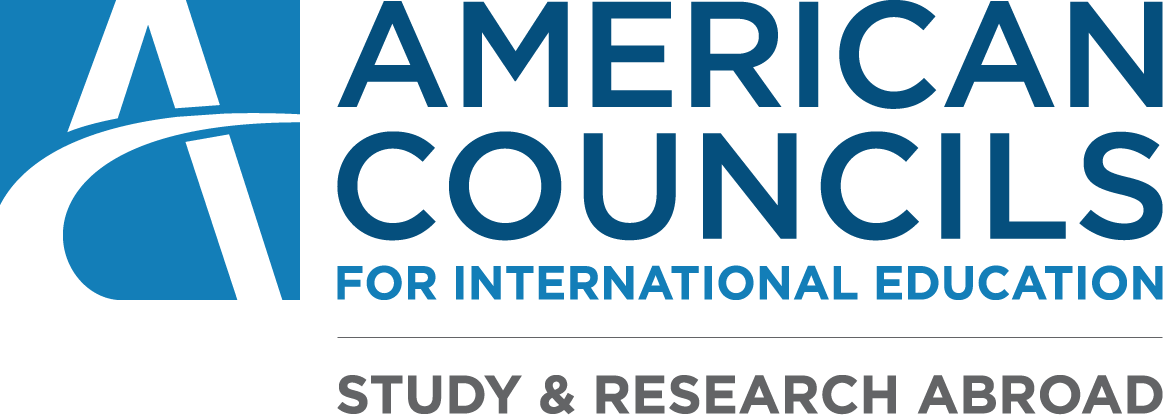
OUR PROGRAMS
Russian Heritage Speakers Program
The Heritage Speakers Program is designed to address the unique challenges faced by students who grew up speaking Russian in the U.S. Through intensive, individualized instruction and cultural immersion activities, the program enables heritage speakers to make rapid gains in speaking, reading, writing, and listening skills.
About The Program
The Russian Heritage Speakers Program is intended to address the specific needs of students who speak Russian at home or with relatives, or who grew up speaking Russian and wish to strengthen their Russian skills. Program participants work with American Councils staff and host university faculty to develop an individualized program serving their unique needs as language learners. All programs focus on the development of Russian language skills, including grammar, conversation, and phonetics. Participants receive a minimum of twelve hours per week of in-class contact hours. Program features include homestays, weekly excursions, travel to other regions of the host country, conversation partners, and a wide range of opportunities to pursue hobbies and personal interests in a Russian context.
Academics and Courses
Participants in the Heritage Speakers Program take an active role in shaping their own curricula. When applying to the program, applicants write a short essay outlining their study goals and describing the academic program that they believe will best meet their needs as language students. American Councils Washington staff, resident directors, and Russian university faculty then work with each student to develop these initial proposals into effective, individualized programs. All programs focus on intensive language gain in the areas of grammar, conversation, and vocabulary development; courses in literature, history, and area studies are available for advanced students. Participants attend at least 12 hours per week of intensive, individualized classes. While almost all classes are conducted one-on-one with the teacher, students may study in pairs on some occasions.
In recent years, Russian Heritage Speakers Program participants have completed courses at their host universities in Art History, Mathematics, Engineering, Sociology, Theater Studies, Russian History, Religion, Psychology, and Literature.
Participants receive academic credit through Bryn Mawr College, an institutional member of American Councils. Upon successful completion of the program, Bryn Mawr College issues:
8 undergraduate/10 graduate credit hours for the summer program,
16 undergraduate/15 graduate credit hours for the fall or spring semesters, and
32 undergraduate/30 graduate credit hours for the academic year program.
Conversation Partners
To aid cultural integration and support academic learning, participants have the opportunity to meet with conversation partners two hours per week. Conversation partners introduce participants to local people, accompany participants on sightseeing tours, organize cultural activities (cinema, museum, etc.), and provide students with academic support. The conversation partners are expected to speak only the target language.
Excursions & Cultural Activities
One day a week of the academic program is set aside for travel to local sites of social, cultural and historical significance. All excursions are conducted in Russian and include sites such as museums, churches, schools, research centers, theatres, and historical estates. HSP participants attend excursions with participants on the Advanced Russian Language and Area Studies Program (RLASP). Towards the middle of the semester, resident directors arrange a week-long regional field studies trip outside of the host city.
Volunteer Opportunities
Upon arrival in the host country, American Councils staff can arrange volunteering or community service placements for academic year and semester participants. Summer participants are encouraged to pursue volunteer opportunities, such as sports and clubs. Volunteering placements depend significantly on the participant's Russian-proficiency level and the needs of the organization. Volunteer opportunities are unpaid and non-credit bearing.
Participants consistently rate volunteering and community service as substantive and valuable; many former students report that their out-of-classroom experiences gave them unique insights into the host country society and Russian language, as well as a deep sense of personal fulfillment.
Housing & Meals
Program participants live with local, Russian-speaking host families.
Living with a host family provides valuable cultural experience to complement the academic program. Host families expose participants to authentic, everyday life in the host country while also providing a supportive environment for students to practice their growing language skills. While staying with a host family, participants are provided with a private room, two meals per day, and keys to the apartment or house. All host families are screened, selected, and monitored by American Councils home-stay coordinators and resident directors.
Financial Aid
Multiple sources of financial aid are available to prospective study abroad participants to help pay for programs abroad, including private, federal, university, and American Councils scholarships. Learn more here.
Support
All program participants are required to attend a mandatory pre-departure orientation in Washington, D.C. at the start of the program. Orientation sessions address health and safety, academic culture, host-family life, culture shock, and strategies to maximize language gain. Students will also have a chance to meet and get to know their resident directors, fellow participants, and alumni during the orientation. Lodging and meals will be provided. Upon arrival in the host country, participants attend an informative in-country orientation.
While overseas, participants have access to in-country program staff that provide around-the-clock emergency support. A full-time resident director oversees the academic and cultural program; assists participants in academic, administrative and personal matters; and coordinates activities with the host institution faculty. During the program, the AC Study Abroad Team in Washington, D.C. stays in close contact via email and telephone with in-country program staff and provides updates as needed to study abroad offices, university partners, and family members.
Participants are enrolled in comprehensive overseas health, accident, and evacuation insurance through Cultural Insurance Services International (CISI) for the duration of the program. CISI provides medical coverage of up to $250,000 per accident or illness. Enrollment in the CISI plan also provides full coverage for emergency medical evacuation.
All participants are provided with a single-entry visa to the host-country for the duration of the academic program. It is the student's responsibility to obtain any other visas required by their individual itineraries. Visa application information and forms are provided upon acceptance to the program.
Program Snapshot
Eligibility / Prerequisites
Russian heritage speakers or students with an extensive background in Russian
Minimum GPA of 2.7
Applicants must be at least 18 years old by the application deadline
Program Locations
Almaty (Kazakhstan)
Tallinn (Estonia)
Yerevan (Armenia)
Program Dates
Spring 2025
January 27 - May 9, 2025
Summer 2025
Armenia and Estonia: June 9 - August 1, 2025
Kazakhstan: June 16 - August 8, 2025
Fall 2025
August 26 - December 12, 2025
Dates are approximate and may vary slightly depending on country. Start dates mark the two-day orientation before departure.
Program Cost
Spring 2025:
Almaty and Yerevan: $20,300
Tallin: $21,800
Starting June 2025:
Summer in Almaty, Tbilisi, and Yerevan: $9,750
Summer in Tallinn: $10,300
Semester in Almaty and Yerevan: $20,600
Semester in Tallinn: $21,800
Academic Year in Almaty and Yerevan: $37,300
Academic Year in Tallinn: $39,300
Applications Deadlines
Summer: February 15
Fall & Academic Year: March 15
Spring: October 15
Quick Links
